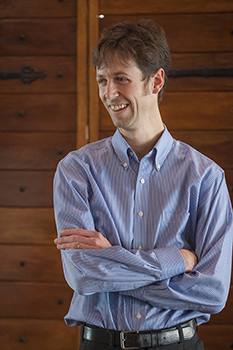Latest News Archive
Please select Category, Year, and then Month to display items
17 October 2024
|
Story Precious Shamase
|
Photo Supplied
 Sibahle Mabaso during her BA (Hons) Drama and Theatre Arts (2022) graduation, which she passed cum laude.
Sibahle Mabaso during her BA (Hons) Drama and Theatre Arts (2022) graduation, which she passed cum laude.
Sibahle Mabaso, a talented and driven individual, has been making waves at the University of the Free State (UFS). As a runner-up in the prestigious Siyaphumelela ATD DREAM Scholar programme, Mabaso's dedication and achievements have not gone unnoticed.
A multi-faceted student, Mabaso excelled in both her academic pursuits and extracurricular activities. A graduate of the UFS Drama and Theatre Arts programme, Mabaso's academic pursuits have been as diverse as her interests. She has a BA in Drama and Theatre Arts (2019-2021), a BA Honours in Drama and Theatre Arts (2022), and she is currently pursuing a Master of Arts with specialisation in Gender Studies. Her passion for the arts is evident in her work as a playwright, director, and educator. Mabaso is currently an Assistant Researcher in Transition, Development and Success within the Centre for Teaching and Learning.
Mabaso's journey to academic success has been marked by resilience and perseverance. Despite facing challenges, she has overcome obstacles through hard work, determination, and the support of mentors.
Beyond her academic achievements, Mabaso is committed to giving back to her community. She recently founded a creative enterprise called Wild Geese PTY LTD, which aims to provide opportunities for young creatives. Through her work, Mabaso hopes to inspire and mentor others, sharing her experiences and knowledge to help them reach their full potential.
As Mabaso continues her academic journey and pursues her career goals, her dedication and passion for both her studies and community engagement are sure to inspire others. Her achievements serve as a testament to the power of hard work, resilience, and a commitment to making a positive impact. Looking ahead, Mabaso hopes to continue her academic pursuits and pursue a career in higher education. She is also passionate about giving back to her community and mentoring young people. With her talent, dedication, and unwavering spirit, there is no doubt that Sibahle Mabaso will continue to achieve great things.
Stanford University hosts book launch for UFS Prestige Scholar
2015-12-14

Dr Christian Williams, a member of the Vice-Chancellor’s Prestige Scholars Programme, had his book launched by Stanford University. The book called National Liberation in Postcolonial Southern Africa: A Historical Ethnography of SWAPO’s Exile Camps will be available in South Africa early in 2016.
Photo: Sonia Small |
A launch for the much-anticipated book by Dr Christian Williams from the University of the Free State (UFS) was sponsored by the Humanities Center and the Center for African Studies of Stanford University in the USA, among others.
The launch of the book, National Liberation in Postcolonial Southern Africa: A Historical Ethnography of SWAPO’s Exile Camps, coincided with the 40th anniversary of Angola’s independence.
The book was published by Cambridge University Press in September 2015, and the launch at Stanford was on 16 November 2015.
This groundbreaking study, which will be available in South Africa early next year, has already been lauded for its invaluable contribution and the depth of its scholarship. The author is a senior lecturer in the Department of Anthropology of the UFS, and member of the Vice-Chancellor’s Prestige Scholars Programme (PSP). He is a former Fulbright scholar, and holds a doctorate from the University of Michigan in History and Anthropology.
National Liberation in Postcolonial Southern Africa follows members of the South West Africa People's Organization (SWAPO) through three decades of exile in Tanzania, Zambia, and Angola.
It highlights how different Namibians experienced exile, as well as the tensions that developed within SWAPO as Namibians encountered one another while officials asserted their power and protected their interests.
It also follows the return of Namibians who lived in exile to post-colonial Namibia, examining the extent to which divisions and hierarchies that emerged in the camps still continue to shape Namibians today.